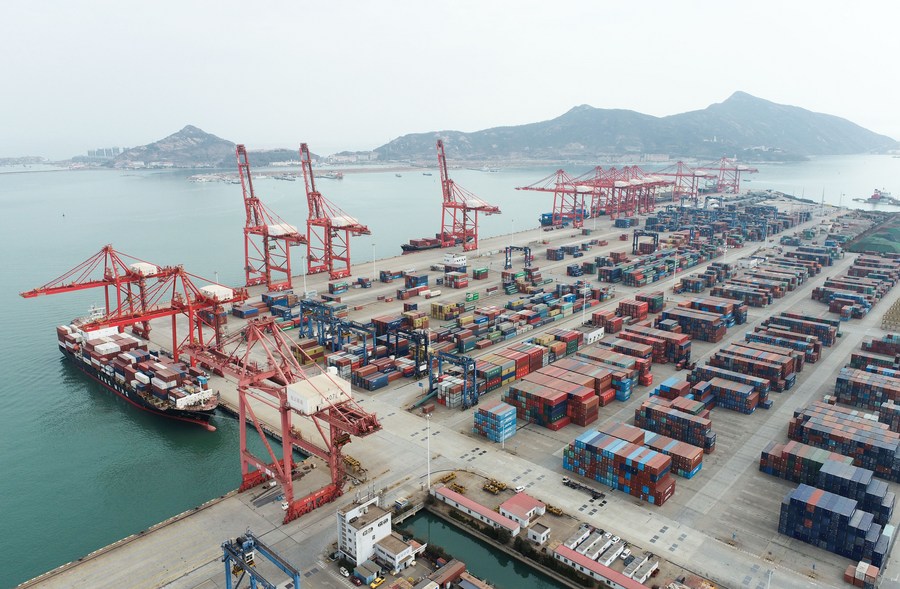
China on Friday cut the market-based benchmark lending rate, the latest move to shore up the economy.

The over-five-year loan prime rate (LPR), on which many lenders base their mortgage rates, fell by 15 basis points to 4.45 percent, said the National Interbank Funding Center. It represents the largest reduction in this rate since the country revamped the LPR mechanism in 2019.
The one-year LPR stood at 3.7 percent, unchanged from one month earlier.
The monthly-released data is a pricing reference rate for banks and is based on rates of the central bank's open market operations, especially the medium-term lending facility rate.
The reduction reflects China's strengthened efforts to support the real economy, said Wen Bin, chief analyst at China Minsheng Bank.
"This is a key step to anchor market expectations, bolstering market confidence," Wen said, noting that it will spur financing demand by axing the financing costs for enterprises and funding costs for banks.
The five-year LPR was lowered by a "more than expected" margin, said Zhang Aoping, the dean of the Incremental Research Institute.
The latest rate cut followed a move on Sunday to allow commercial banks to reduce the lower limit of interest rates on home loans by 20 basis points for first-home buyers, based on the LPR.
These measures will help the real estate market sustain stable and healthy development and stimulate overall demand, said Zhang.
China's property industry, a vital sector for economic growth, is taking a hit as recent COVID-19 resurgences and the volatile global situation impacted the economy.
The country's economy took a hit from the domestic resurgence of COVID-19 cases in April. Authorities have stressed the negative impact will be short-lived.
China has taken steps to revive the economy and help enterprises tide over tough times. These steps include increasing re-lending quotas, launching re-lending arrangements for technological innovation, elderly care services, clean use of coal, and encouraging local banks to issue more inclusive loans for small and micro businesses through market-based means.
The central bank announced a cut in reserve requirement ratios for financial institutions in April, adding long-term and stable capital sources for the country's financial institutions.
Measures, including tax refunds and fee cuts, the deferral of social security contribution payments, and the smoothing of industrial and supply chains, have also been taken to support market entities.
Central authorities have called for an accelerated pace and ramped-up efforts to implement macro policies, and urged local governments to put forward more measures in May to bring the economy back on track.
Going forward, Wen expected that the country would continue to use the structural monetary policy to enhance support for industries and companies in difficulty and thus keep the economy running in a reasonable range.
China's economy is expected to move toward a new round of recovery with the intensive implementation of macro and micro policies and counter-cyclical adjustments, Zhang said.